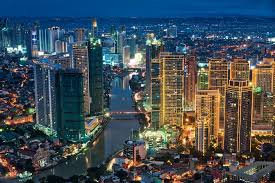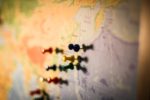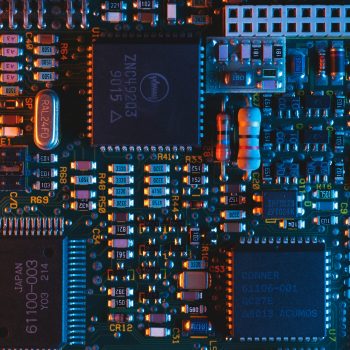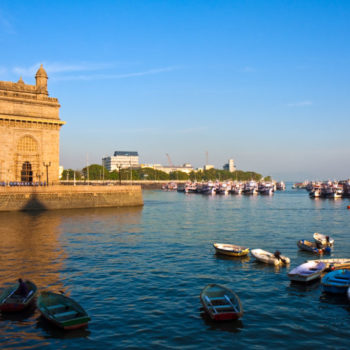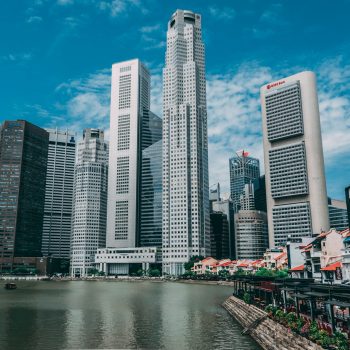This article was written in cooperation with QBO Innovation Hub in preparation of Startup Ecosystem Ranking Report 2019 that ranked Manila in spot 84 out of 1,000 cities.
Click here to view Manila’s Startup Map
The Philippines startup ecosystem, while still relatively small, especially if compared to its Southeast Asian neighbors, is rapidly evolving. Many players in the industry are confident that Filipinos have the capacity, creativity, and skill to build successful startups.
There are over 300 active startups in the Philippines, with the current startup ecosystem largely concentrated within Metro Manila, the national capital region of the country. Majority of the country’s startup stakeholders are based within Metro Manila, but Davao City and Cebu City also show great promise as potential launchpads for new startups.
The current momentum of Manila’s startup ecosystem
In 2015, there were only 100 reported active startups in the Philippines with a total of US$40 million in funding and investment. Majority of those startups were still in the early development stages with very few exits. In the latest Southeast Asian Startup Ecosystem report, there were over 300 active startups reported in 2018 that have raised a total deal value of US$304 million.
While the Philippine startup ecosystem is still catching up with its Southeast Asian peers, it’s certainly grown significantly over the years. Already, it’s attracted foreign collaboration with its inclusion in global startup initiatives such as Echelon, She Loves Tech, Tech Planter, etc. And it’s also attracted foreign investments with the development of the Gobi-Core fund, a collaboration between Core Capital, a Malaysia-based Chinese VC, and Gobi Partners, a Philippine-based VC, to create a US$10 million for seed stage and pre-series A companies in the Philippines.
The biggest success stories
Revolution Precrafted is the Philippines’ first unicorn. After 2 years in business, Revolution Precrafted, a designer of prefabricated designer homes, raised its series B round co-led by Singapore’s k2 VC, valuing the company at over US$1 billion. This makes it one of the fastest to achieve billion-dollar status in Southeast Asia.
Sulit.com.ph was one of the largest online classified ads network in the country, which was eventually acquired by Naspers Classifieds Group when they bought 51 percent of Sulit for an undisclosed sum. Also a major shareholder at OLX, the company announced in 2013 that Sulit would merge with OLX in a bid to capture 80 percent of the market.
Coins.ph is a local fintech company that enables those without a bank account to easily access financial services from their phone. It was recently acquired by the ride-hailing startup, Go-Jek, through a “substantial investment” as part of their expansion plans into the Philippines. While the deal is officially undisclosed, it has been reported that Go-Jek paid US$72 million for the acquisition, making it Go-Jek’s largest outlay to date.
City strengths for startups
Government investment and central bank policies are putting the systems in place to encourage growth and development for small and medium enterprises (SMEs). This includes the P3 program, Kapatid Mentor Me Program, Go Lokal Program, SME Roving Academy, Shared Services Facilities, Go Negosyo Act, Slingshot Philippines, and QBO innovation Hub. These initiatives are meant to encourage more startup entrepreneurship through local and international collaboration, address barriers to growth, and support existing startups.
Strongest industries in the Philippines
- Information & Communications Technology (US$107.5M)
- Fintech (US$20.4M)
- Enterprise Solution (US$10M)
These are the top 3 industry verticals based on fundraising deals raised in 2018, according to e27’s Southeast Asian Startup Ecosystem Report 2018. Philippine fintech startups are doing relatively well with some recording positive net revenue and at least 3 reporting deals worth a total of US$26 million. Meanwhile, the Philippines is also one of the earliest adopters of blockchain in the region with a slew of fintech startups integrating blockchain into their platforms.
What makes Philippines unique on a global and national level?
The Philippines is unique as it is home to a massive, highly tech-enabled and tech-savvy, English-speaking population and also serves as a natural gateway to the Southeast Asian market.
The Philippines is also known for its vibrant business process outsourcing (BPO) industry and the strong remittances it receives from overseas Filipino workers, both of which contribute to the country’s positive business climate.
Current challenges
One of the biggest challenges for the Philippines as a whole is the novelty and general lack of awareness on startup entrepreneurship. Many Filipinos still can’t differentiate between a startup and a traditional SME and also maintain a conservative mindset when it comes to entrepreneurship, avoiding risk and big, forward-thinking decisions. This poses as a barrier to startup entrepreneurship as well as the adoption of new technologies.
According to the 2017 Philippine Startup Survey, the biggest challenges for founders were capital requirements (88%), regulatory requirements (54%), and general economics/ business conditions (50%).
The biggest players in the ecosystem
QBO Innovation Hub is the country’s first public-private initiative for startups, founded by IdeaSpace Foundation, Inc., the Department of Science and Technology (DOST), J.P. Morgan, and the Department of Trade and Industry (DTI). It is one of the most active players in the local ecosystem, hosting and co-hosting over 300 events and programs since its inception in 2016. It serves as the country’s national innovation hub, offering membership as well as all its programs and services free for startups within its community as a means of developing the startup ecosystem.
IdeaSpace Foundation is supported by the MVP group of companies and is one of the most active players in the Philippine startup ecosystem, financially supporting over 60 startups and participating in over 300 startup events since its inception in 2012. They offer a program that combines incubation and acceleration that helps ideas become actual commercial products.
Launchgarage is a tech innovation hub co-founded by Jojo Flores, the co-founder of Plug and Play Tech Center, a Silicon Valley-based incubator and accelerator. Its role in the ecosystem is to help the community raise awareness to drive investment as a means to wealth generation, job creation, and overall growth.
Kickstart Ventures is Globe Telecom’s corporate venture capitalist that has invested in 42 startups across different sectors within the startup ecosystem. They have the capacity to invest up to US$5 million, Kickstart’s portfolio includes investments from the USA, Israel, Canada, and Indonesia as well as some of the Philippines’ most active startups including Kalibrr, Lenddo, mClinica, Coins.ph, Lifetrack, ZAP, and engageSPARK. Beyond cash, Kickstart also offers its startups market access, introductions to partners and mentors, and expert advice.
Some of the interesting successful startup initiatives
QBO Innovation Hub events and programs. QBO offers its regular programs and services all year round to local startup founders and enthusiasts. It has also been the main proponent of some of the biggest startup initiatives in the country, collaborating with various organizations for huge pitch competitions and summits.
This includes STARTUPS TO THE RESQUE, a collaboration with the United Nations Development Programme (UNDP), to identify ASEAN-wide startups in the disaster relief and resilience sector; 2018 Techtonic, the largest startup conference in the Philippines; 2017 Philippine Startup Survey, a collaboration with PwC to create the first local startup survey from the perspective of founders, among a number of initiatives.
Other interesting startup initiatives include Slingshot, the DTI’s annual initiative that serves as the government’s support to startups and innovation in the country and Geeks on a Beach, an annual tech conference held at a beach.
